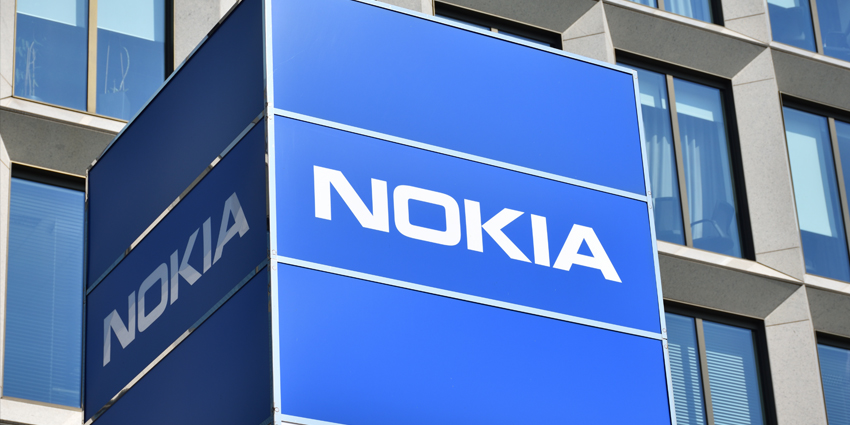For years, innovators, business leaders, vendors, and developers have discussed the same topic the future of work although what is it and does the metaverse fit in?
The world as we know it has evolved, and the workplace has changed, leading to new predictions on what the future might hold for tomorrow’s staff.
So, what does the future of work look like for companies today? Is the enterprise world already undertaking a future of work evolution, changing how teams operate and function?
In various ways, the future of work is led by technology. From advancements in telecommunications to data sharing, digital solutions are often the critical driving force behind enterprise transformation journeys with the intent to optimise ROI.
On the XR side, many enterprise-grade solutions providers aim to distribute immersive hardware and software for the following stages of digital transformation.
While the metaverse technology marketplace faces media backlash, the enterprise market is booming. In part, enterprise-grade XR solution’s success is often led by technology stacks which integrate various immersive and related hardware or software to provide a transformative business tool.
The metaverse is no different. With immersive solutions such as smartglasses, enterprise end-users can leverage shared immersive spaces and foundational metaverse solutions to improve workplace procedures, including but not limited to design processes, meetings, and training.
The metaverse exists in VR/MR/AR platforms meaning that the space is not reserved for a fully immersive experience which removes a user from the real world. The technology also includes AR tools which allow users to collaborate virtually with co-workers over a shared immersive channel.
What is the Future of Work? An Introduction
The “Future of Work” refers to the workplace and working landscape in the coming years. The term is relatively broad, as it can refer to technology innovations and digital transformation initiatives powering new workflows and how, when, and where work will be completed. The core components of the future of work define as follows:
- How work is done: One of the main talking points connected to this concept is how projects and tasks are completed in the future of work. In recent years, we’ve seen the rise of robotics, AI, automation, and similar tools to help streamline work processes. Technology will make considerable alterations to how work is done in the future of work. The connection between man and machine will grow to improve productivity, creativity, and efficiency.
- Who does the work: The future of work opens the door to a wide variety of employee personas, different from the team members we knew a few years ago. Not only are AI systems taking over specific repetitive tasks, but other kinds of employees are entering the workforce in a non-traditional capacity.
- Where work is done: The future of work calls into question where work should be completed. Standard office environments are rapidly disappearing in favour of more flexible spaces, which allow for common trends like remote and hybrid work. Now, the potential for the future workplace could lie in the metaverse.
The Trends Influencing the Future of Work and the Metaverse
The future of work is a complex concept influenced by various changing trends, ideologies, and patterns in the employment landscape. When technology enthusiasts discuss work solutions, many are drawn to XR, AI, edge computing, and the metaverse, with varying opinions of each space.
However, with each future of work technology comes a wave of questions regarding ethics, data privacy, and onboarding. New technology solutions of all kinds require a careful approach towards implementation, such as:
Transparency and empathy
Employers must carefully consider the social implications of introducing new technology solutions to the workplace. Demonstrating compassion and openness in a workplace environment is critical to success and unlocking new opportunities to improve employee wellbeing.
For example, if a business wish to transition into a remote/hybrid environment, its priorities must change. Companies increasingly invest in tools and technologies to enhance remote collaboration, synchronise teams, and build a more inclusive company culture for everyone.
The power of data
The amount of data modern business generates is astronomical. Business leaders increasingly seek to leverage this data to create better processes, products, and service strategies.
When handling sensitive data, companies must consider proper privacy and security methods to ensure the secure management of emerging data formats such as digital twins, which streamline design processes, empower better employee training, and even unlock valuable insights into the customer journey.
Evolving workforces
One of the significant factors present in conversations about the future of work is those in a team. There is no one-size-fits-all in today’s workforce environment. Increasingly workplace expectations are evolving to match workers with different backgrounds and knowledge. Recently, teams have become more distributed, self-sufficient, and flexible following an influx of remote working tools.
Contractors and remote workers are more common, hybrid working has become a mainstay of how most companies operate, and even the roles available to team members are changing.
Changing skillsets
As automated tools and robotic processes take over repetitive tasks and companies turn to alternative, immersive collaboration tools, the skills companies require when hiring new employees change.
As a result, business leaders are heavily investing in reskilling and upskilling opportunities to develop their teams. Training is being offered at an unprecedented scale, not just on-premises but in an immersive environment, as XR solutions are optimising workplace outcomes and development today.
Transforming communication and collaboration
As employees become more distributed, the way teams communicate and collaborate is changing too. Companies are also investing in AI tools to bridge the gaps between geographical groups with real-time translation and utilising conversational AI tools to optimise workflows.
XR environments are also emerging to unite staff members within a new digital work hub. Metaverse services such as Virbela offer customisable virtual office spaces to execute mission-critical decisions, with many services providing integrated tools like video, VR, AR, AI, and more to bring teams together.
Ethical and compliance evolutions
As companies collect more data and interact with consumers and employees in new ways, workplace ethics are also beginning to change. We’re seeing changes in how companies must protect their employees when working in virtual and distributed environments.
New compliance regulations and standards are constantly emerging for collecting and using data. This will become particularly crucial in the age of the metaverse when personal data evolve to match the demands of growing digital identities.
Is the Metaverse Influencing the Future of Work?
There’s no one-size-fits-all definition of the future of work today. Part of the reason is that our perception of the future for employers and their employees constantly changes. Only a few years ago, few companies would have imagined that most of their staff would one day be working in hybrid environments connected by collaboration tools.
Moreover, introducing immersive workplace tools seems like an ever bigger jump pre-COVID. Although the world changes and as does work, the technology and business world often expand in parallel with each other as forward-thinking firms experiment with ways to enhance a business.
While the metaverse has not taken over the business world yet, video conferencing tools still reign supreme for several reasons, mainly related to adoption rates and hardware requirements. XR and the metaverse are still gaining traction, with fully immersive offerings like Virbela and Engage striking big in proving serious enterprise metaverse adoption avenues.
Moreover, the rise of XR presents firms with supplementary and integrated technology that can provide an avenue to or enhance a metaverse service.
For example, immersive collaboration firms like Campfire and GigXR present AR-based shared experiences that allow workers to collaborate in an immersive metaverse-lite experience – potentially setting the foundation for the metaverse’s future in t=enterprise.
Future of Work Avenues
For many, it isn’t easy to define the future of work. Several technologies are helping to influence the next generation of the workplace. Here are some of the most crucial technological innovations impacting the future of work:
Extended Reality
Perhaps more than any other new technology, XR as technology is already making its mark on the future of work. Across every industry, companies are experimenting with AR/VR/MR to enable better collaboration and communication, deliver ample training opportunities, provide branded consumer experiences, and bring teams together.
XR hardware and software can change how firms hire, onboard, train, and introduce an employee to teams, as well as their developmental and upskilling across the then-coming years. Changing production and ideation processes can even influence workflows and product distribution.
Networking Innovation
As the future of work becomes increasingly digital, innovation is occurring rapidly within the networking landscape. 5G will likely deliver better speed and reduced latency for those investing in new technologies like the metaverse.
Introducing greater networking will allow XR firms to deliver RT3D immersive content quicker than ever. Allowing smart glasses to handle higher-quality visuals with improved latency.
Cloud computing is becoming increasingly popular in recent years as our world increasingly depends on vast amounts of data. The future of networking will be defined by speed, flexibility, and scale.
AI, Machine Learning and Automation
Advances in AI, robotics, and machine learning have already begun changing the workplace. Conversational AI solutions such as ChatGPT will be more present in the workplace as the knowledge hivemind grows, and increasingly workers [may] depend on AI to optimise workflows.
Additionally, conversational AI models are starting to find a place in immersive enterprise tools, with the firm Virtualspeach flying the flag for ChatGPT in immersive training scenarios – creating a dynamic platform.
Flexible, Accessible Innovation
Perhaps one of the most valuable components of the future of work for many companies will be the ability to access more flexible environments for innovation. We’ve already seen an increase in as-a-service offerings available on the marketplace for growing companies in search of scale. Moreover, no-code and low-code development tools are also unlocking new opportunities.
The decentralised landscape introduced by the metaverse, alongside ever-evolving tools for digital growth, should ensure companies can continue rapidly growing their workplace according to every user’s unique needs.
The Metaverse and the Future of Work in 2023
So, what is the future of work?
In many ways, the future of work may never be defined as new solutions entering the market; a more recent and further optimised alternative could easily have the media touting it as the next big thing.
Although in 2023, it is clear that the next five years, just like the last five years, will be overwhelming transformative for workplace technology solutions. The metaverse may well be front and centre.







